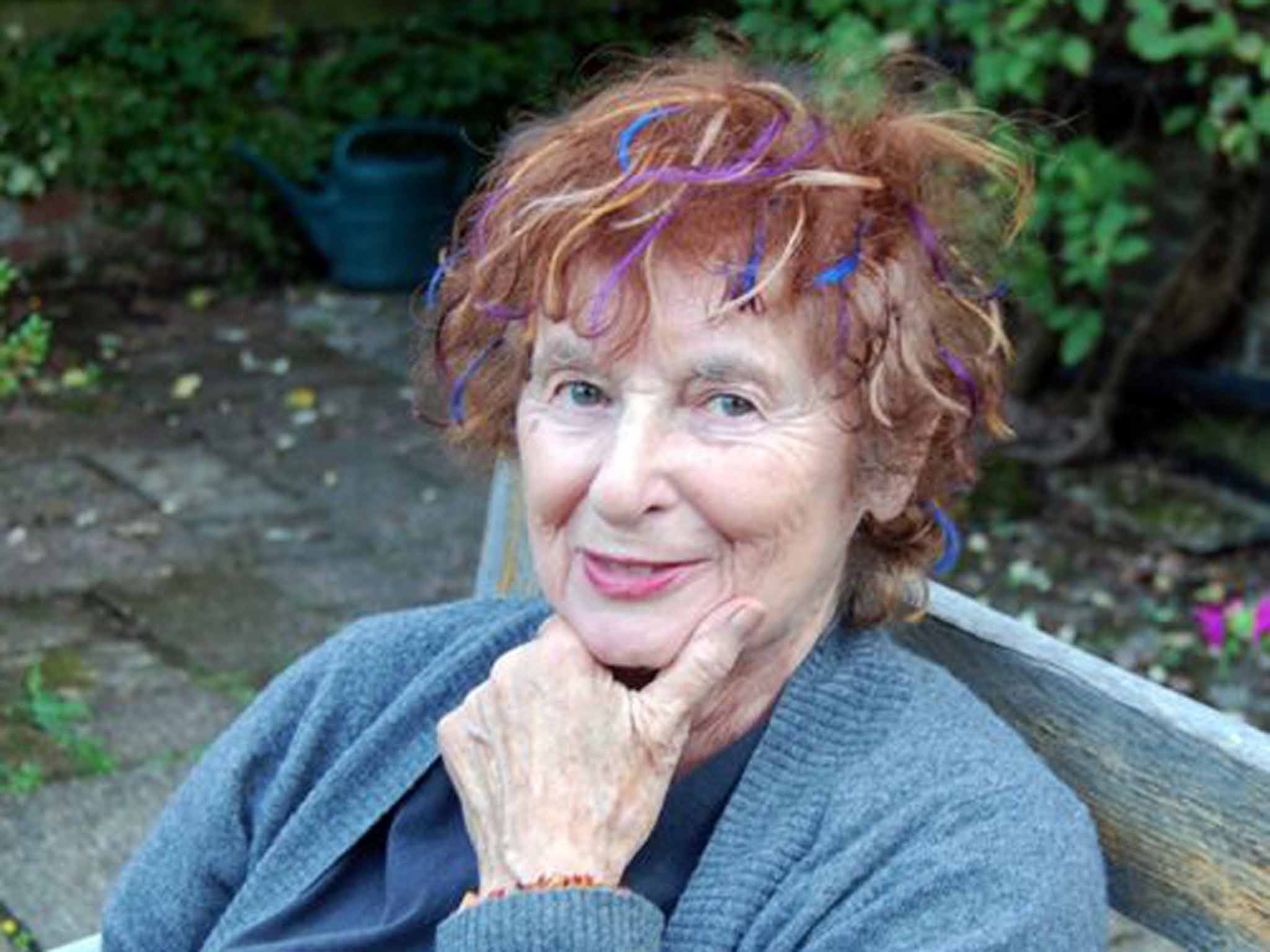Ruth Boswell: Producer of classic 1970s children's TV drama who went on to found her own publishing house
Boswell produced the first three series of The Tomorrow People and worked on the much-loved Rainbow

Ruth Boswell once stated that her method of assessing a work of fiction was that if, by its end, “the main character has not changed, there is no point.” Her own life was hardly without its own changes: at the age of nine, she was a refugee from Nazism who travelled alone across Europe to Britain; and she went on to become a television and film producer, a denizen of artistic London, a novelist, a publisher, a book editor and a peace campaigner.
She was born Ruth Neubauer in Graz in Austria, home to her mother's family. Her businessman father then moved the family to Brno, then in Czechoslovakia. In 1938, she took her train journey to Britain, under the auspices of a sponsor in London; her mother perished in the camps. Ruth's education then continued at Springfield School in the Chilterns, followed by Kent College, Canterbury.
In 1952, she married a farmer, Charles Abel – but the marriage foundered, and she found herself with “two small children... I had to work.” In 1962, she became assistant to the New Zealand-born, radically inclined artist James Boswell. By 1967, they were in a relationship, and made their home in Muswell Hill in north London. Boswell's wife refused a divorce – so Ruth changed her surname to Boswell by deed poll.
She moved into television – and at Lew Grade's ATV later that decade, she was assistant to the head of scripts, later assuming the position herself. Z Cars prime mover Allan Prior observed in 1969 that she “seems to have a photographic memory, and recalls television plays of five years ago as if they happened last week.” One fellow assistant was Philip Hinchcliffe, another future drama producer.
Although she was merely credited as script editor on Timeslip (ATV, 1970), a science fiction series for children in which a hole in a fence served as a gateway to different time zones, she had, in fact, created it. “I am very interested in the way you can use time and magical realism to show up people's character,” she once said – and this was apparent in the series' young protagonists, who encountered future versions of themselves. James Boswell worked with her on the series, and its paperback novel adaptation, just before his death in 1971.
The next ATV children's series with fantasy elements she worked on was Escape into Night (1972), concerning a bedridden girl able to enter the world of her own drawings. Made and shown in colour, its only existing recordings are in black and white, which oddly aid its eerie atmosphere.
At Thames, Boswell produced the first three series of The Tomorrow People (1973-75). She left after persuading the creator, Roger Price, to modify a script which ended by killing off all the young leads; Price subsequently assumed greater control, and the series became, to non-fans, increasingly silly.
After working on the much-loved Rainbow and remaining at Thames, Boswell oversaw a supernatural anthology series, Shadows (1976). Warrior Queen (1978) starred Sian Phillips as Boudicca alongside Nigel Hawthorne. Boswell then gave Hawthorne the title role in Jukes of Piccadilly (1980) as a spruce, bicycle-riding, tea-drinking detective.
Boswell then headed for the BBC, and dramas for adults. Continuing to display an eye for casting, she granted Patrick Stewart his first TV series lead in Maybury (1981 and 1983), set in a psychiatric hospital. In one two-part story, a young epileptic was played by the 22-year-old Kenneth Branagh.
She then joined Astramead, an early independent production company, to produce Late Starter (BBC, 1985). Peter Barkworth played an Oxford don who finds himself impecunious on early retirement. Black Silk, on BBC2 later that year, starred Rudolph Walker as a socially committed lawyer.
For the ITV region Anglia, her police drama The Chief (1990-95), starring first Tim Pigott-Smith and then Martin Shaw, proved a solid Friday night performer for the network. The Uninvited (1997), a return to sci-fi, followed.
During the 1980s, she had begun a novel, Out of Time, once more involving time travel and drawing on her schooldays and gradual awareness of the rise of fascism. Her agent was unable to find a publisher, and Boswell's course of action was characteristic. Setting up her own publishing imprint, Muswell Press, she published it herself in 2005.
Two years later, with playwright Jan Woolf, she extended its portfolio to other writers. Despite never having directed in the theatre before, she did so for Woolf's play Porn Crackers (Hackney Empire, 2008).
Boswell loathed publishers' current obsession with celebrity, and offered authors editing skills, something she noted was often absent from self-published works. One such was Big Parts (2009) by screenwriter Shane Connaughton, a long-time friend of Boswell's.
In 2004, Boswell commandeered Trafalgar Square for Naming the Dead, an event at which the names of civilians killed in the Iraq war were read out. One reader, at his own insistence, was Professor Stephen Hawking.
Ruth Boswell, producer, writer and publisher: born Graz, Austria 3 May 1929; married 1952 Charles Abel (two sons, one daughter), 1991 Greg Stewart; died London 18 October 2015.
Subscribe to Independent Premium to bookmark this article
Want to bookmark your favourite articles and stories to read or reference later? Start your Independent Premium subscription today.

Join our commenting forum
Join thought-provoking conversations, follow other Independent readers and see their replies